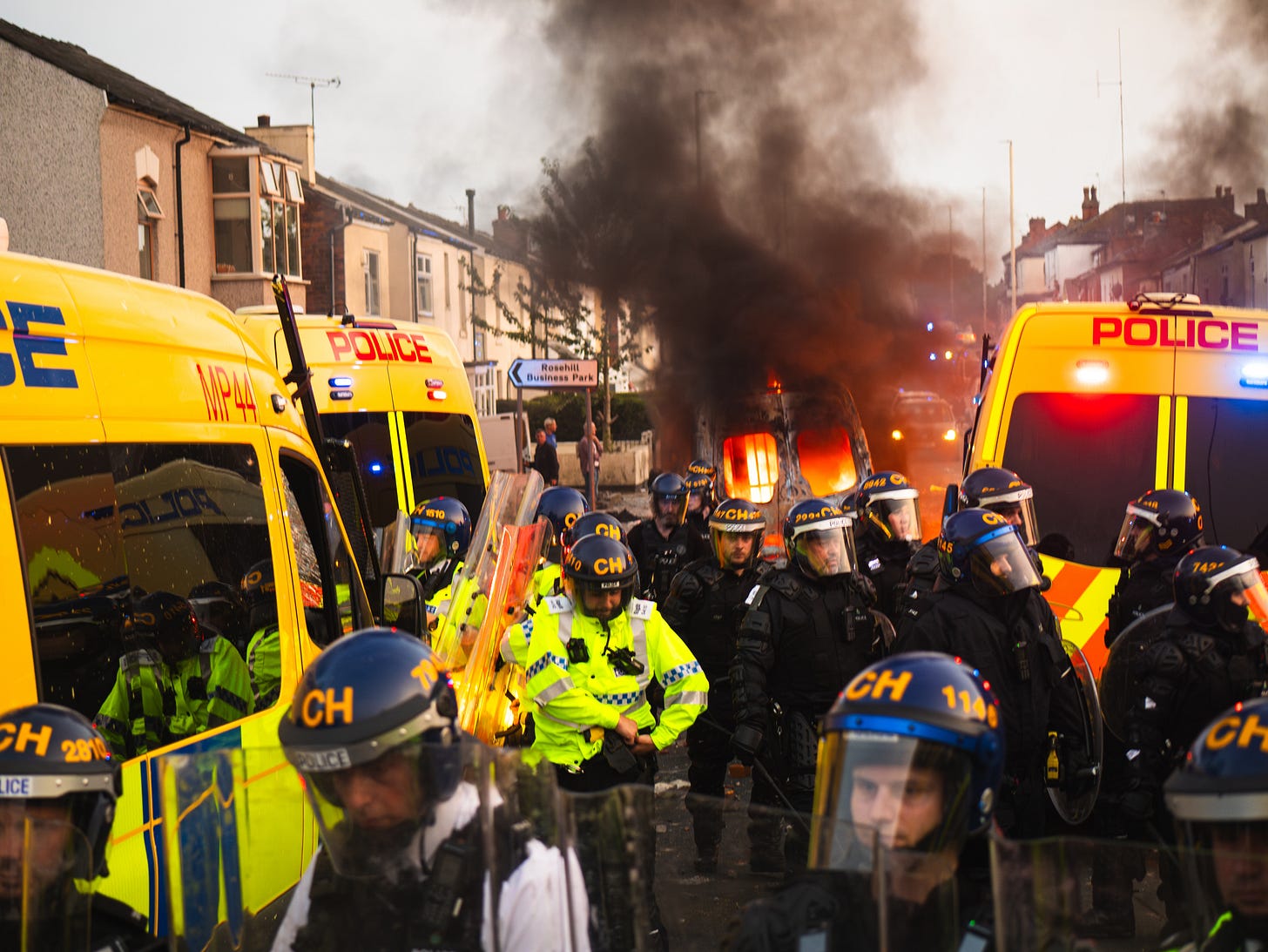What August riots mean for the UK today
The violence was more than a random bout of civil unrest
From July 30 to August 5, protests against economic inequality and government policies escalated into violent riots across the United Kingdom, plunging the country into deep civil unrest.
The uproar resulted in widespread property damage, dozens of injuries and hundreds of arrests, leaving the nation grappling with deeper divisions and calls for urgent reform.
Root Causes
A July 29 mass stabbing in a Southport yoga studio played a large role in prompting these protests. A 17-year-old teenager attacked children at a dance class with a knife, killing three and wounding 10.
The 17-year-old was soon arrested. According to the police, his motive was unclear. False claims circulated online by far-right groups that the perpetrator was a Muslim asylum seeker provoked groups of protestors to take to the streets. Very soon after the incident, the false name of a supposed suspect was widely shared on social media.
Even though the police took quick action to denounce this misinformation and fact check, the rumors had already made a large impression. Within hours, groups of protesters provoked by the false claims online began to mobilize.
Protests Turn Violent
The demonstrations mobilized by protestors quickly devolved into chaos. On July 30, disorder broke out and the police had to hold back protesters near a burning police vehicle.
In London, thousands of protesters gathered outside Parliament, initially calling for justice for the three girls. By nightfall, the atmosphere turned violent as clashes broke out between protesters and police.
Protesters threw rocks and bottles, while police responded with tear gas and baton charges. Protesters set fires and began looting several areas, including Oxford Street.
Over the next several days, similar scenes played out across the country. Demonstrators broke into shops in Manchester and set vehicles on fire in Birmingham. The damage was extensive, with estimates of property destruction reaching millions of pounds.
Prime Minister Sir Keir Starmer and his aides have pointedly avoided answering questions about the underlying causes of the riots. Law enforcement agencies were stretched thin during the unrest, with officers from across the country deployed to affected cities.
The Metropolitan Police reported over 700 arrests in London alone, with charges ranging from looting to assault. Several officers were injured during the clashes, though no fatalities were reported.
Arrests include allegations of violent disorder, theft and antisocial behavior, and police say the investigations across the country will probably last for months.
Economic and Social Impact
The riots caused significant damage to local economies. Small businesses in affected cities were forced to close due to millions of pounds in losses. As with previous riots, the economic toll will likely extend beyond the short term, and local job markets will take time to recover. Fears of ongoing violence led to early closures and evacuation of staff from various retail outlets across the UK.
The riots have deepened existing social divisions within the UK. Although the protests were initially focused on economic hardship and inequality, the unrest was fueled by far-right groups that targeted minority communities and asylum seekers, exploiting racial and ethnic tensions.
This has raised concerns about the spread of xenophobia and hate speech, specifically online, where false information about the events and their perpetrators was widely circulated.
Fatal Trigger
The stabbing of the three young girls lit the fuse for people to demonstrate their dissatisfaction with the government.
“I found that the protests were an embarrassment from a select few of xenophobic individuals hiding behind the flag and message of patriotism,” said a British student on campus given permission to speak on the condition of anonymity. “The root cause of unrest, fueled by social media, was dissatisfaction with individuals’ personal economic circumstances.”
The economic status of the UK is facing severe challenges with rising price levels and lower economic growth than expected. Politicians such as Nigel Farage and Boris Johnson promised that Brexit would fix Britain’s economic problems but it seemed that things are getting worse.
Brexit has erected trade barriers for UK businesses and foreign companies that used Britain as a European base. Considering the consistent financial and military support to Ukraine in the Russia-Ukraine war, the British government faces a huge deficit of $52 billion.
“From my perspective, the protest is an example of looking for something or someone to blame. This can be very dangerous. The trigger pulled by the stabbing rather than the incident itself is the real danger.”
The 2024 UK riots belie existing fissures in British society and the economy. They are expected to leave lasting scars on both the economic landscape and social fabric of the country as the government struggles to restore peace and rebuild trust among divided communities.



